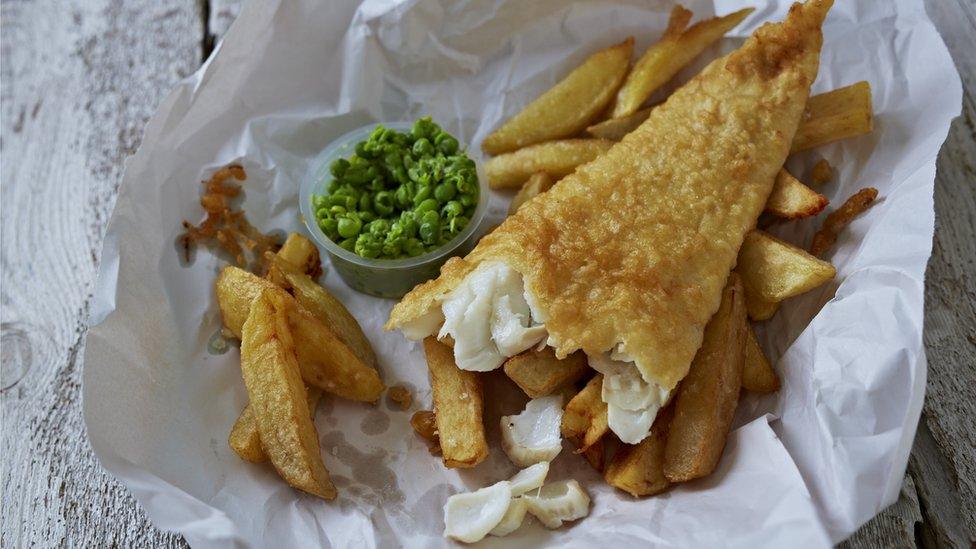Should we stop eating fish and chips?
- Published
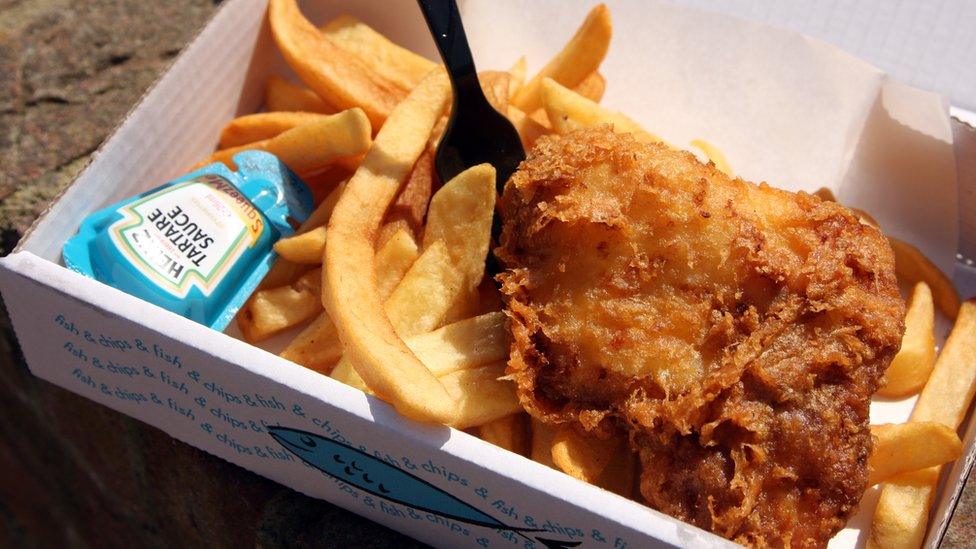
Fish and chip shop owners say more customers are asking about where their fish is sourced
Fish and chips is a national institution that has endured for generations - enjoyed by families, end-of-week workers and seaside day-trippers alike.
But this week a restaurant was shut by its owner who was worried about the impact of his business on the environment.
Aatkin Anadkat, owner of Leicester's The Fish and The Chip, was concerned over declining stocks and fish eating plastic particles found in water.
So should we feel uneasy about continuing to chow down on a British culinary classic?
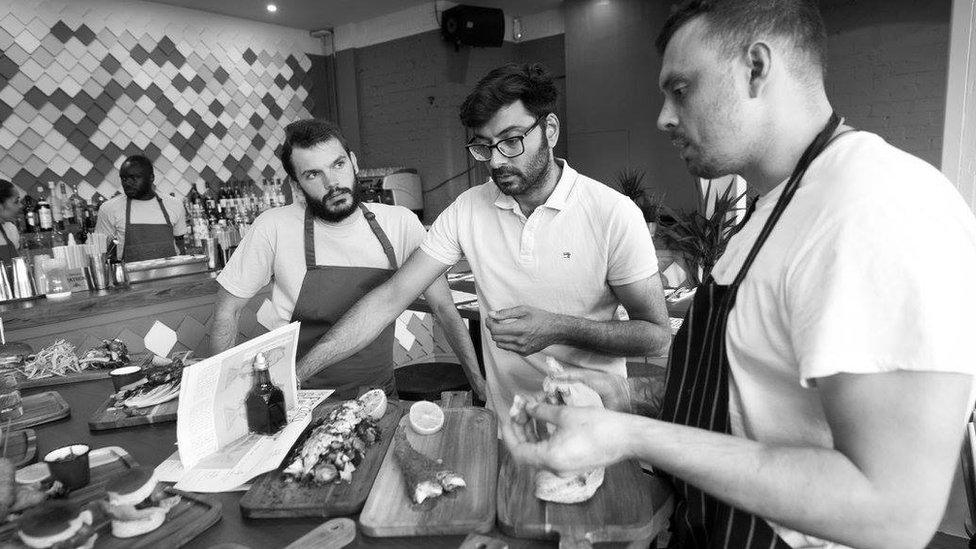
Owner Aatkin Anadkat (centre) said he started thinking about the environmental issues around fishing during a break from work
Mr Anadkat said during a recent break, he started researching fishing methods and became concerned.
His shop closed in April for maintenance, but he later told customers the chippy wouldn't be reopening at all - he is instead working to supply plant-based products and vegan cakes to other firms.
"We have to use our own moral judgement on what feels right for us and it just feels like the fishing industry is so industrialised," he said.
"The way fish is processed out at sea is so mechanical, so robotic, and quite brutal I think.
"All forms of fishing are completely unsustainable and I think there's a lot of miseducation on the state of the oceans and what's happening."
What is sustainable fishing?
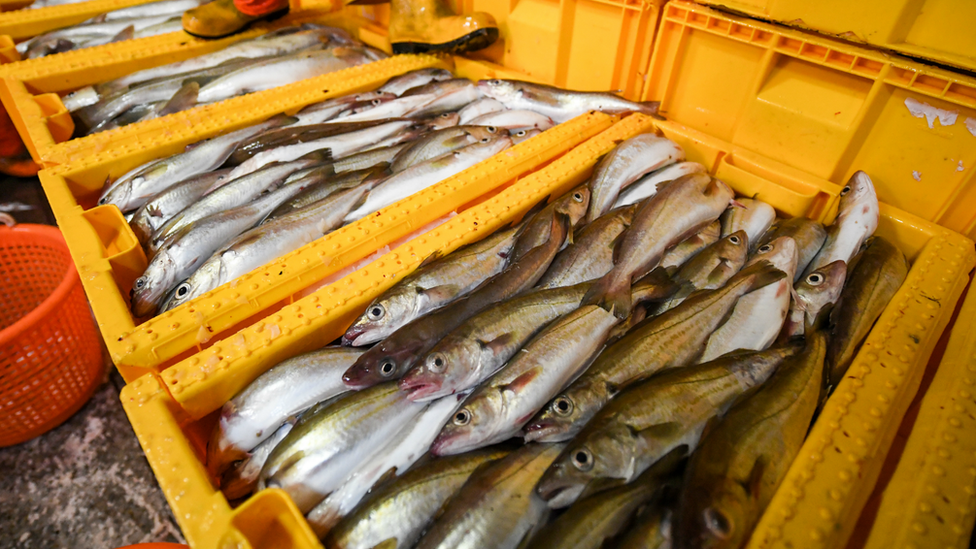
An assessment by the International Council for the Exploration of the Sea found cod stocks have fallen to critical levels
Sustainable fishing is catching or farming fish and seafood in a way that considers the long-term future of a species.
That means leaving enough fish in the ocean for the population to replenish, respecting their habitats with fishing practices and protecting the livelihoods of fishing-dependent communities.
The Marine Stewardship Council (MSC) said the best way to identify seafood sourced sustainably is to look out for its logo and blue tick on fish we buy.
Can you still fish sustainably?
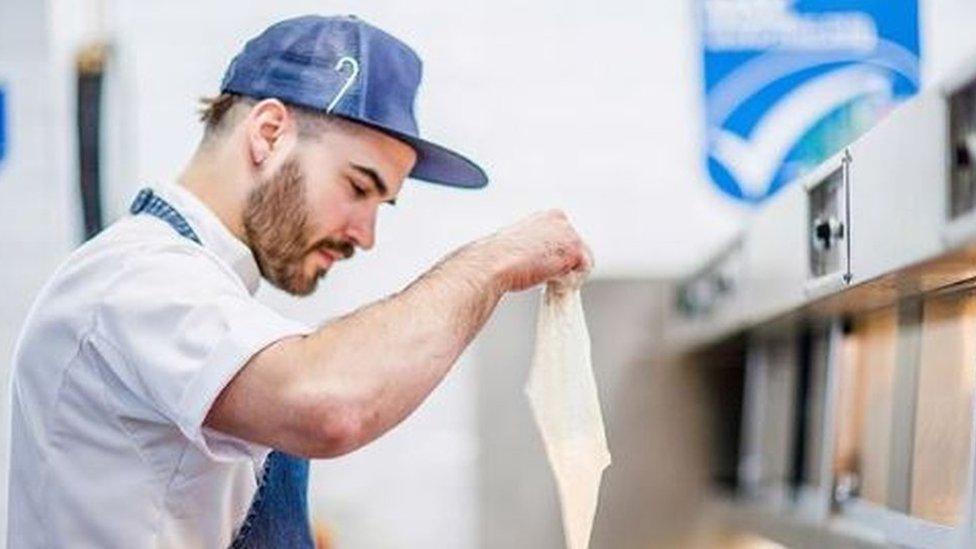
Millers Fish & Chips has a YouTube channel for customers on what happens to fish from the moment it is caught
Yes, according to the Frozen at Sea Fillets Association, which represents fisheries in the North Atlantic. It said 90% of UK fish and chip shops use fillets from sustainable fisheries in Iceland, Norway and Russia.
"There are many ways shops can continue to serve fish and chips without negatively impacting the environment," said Malcolm Large, from the group.
"Haddock and cod fillets frozen within hours of being caught are delivered with the certainty they have been caught with scientifically proven criteria for sustainability, so consumers can still tuck into the nation's favourite dish with a clear conscience."
But he said the fear of consuming microplastic in our cod, while serious, was not a huge issue.
"It would be impossible for us to eat the amount of seafood that we would need to make the plastic a health issue," he said.
Can you tell where your fish has come from?
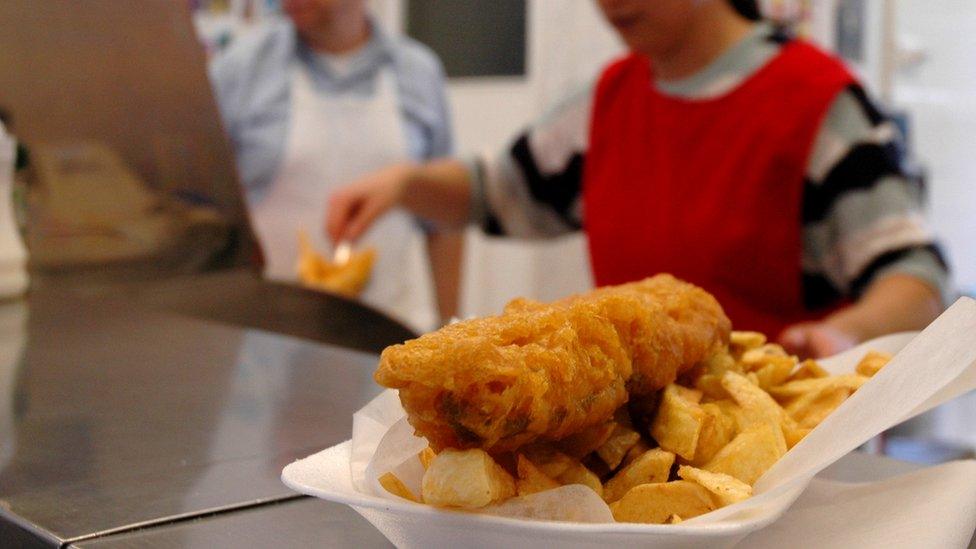
Most UK fish and chip shops source their cod and haddock from the North Atlantic, which is said to have healthy stocks
Nottinghamshire chippy The Cod's Scallops is one of 100 MSC-certified fish and chip shops in the UK.
Owner John Molnar said more people were asking questions, but added 75% of customers still don't care as long as their dinner tastes good.
"Cod and haddock has never been so plentiful compared to five years ago because all these systems weren't in place. There's a lot of fish out there," he said.
"There are hundreds of other species out there too, like hake - which is the most sustainable fish at the moment, in my opinion, and more flavoursome.
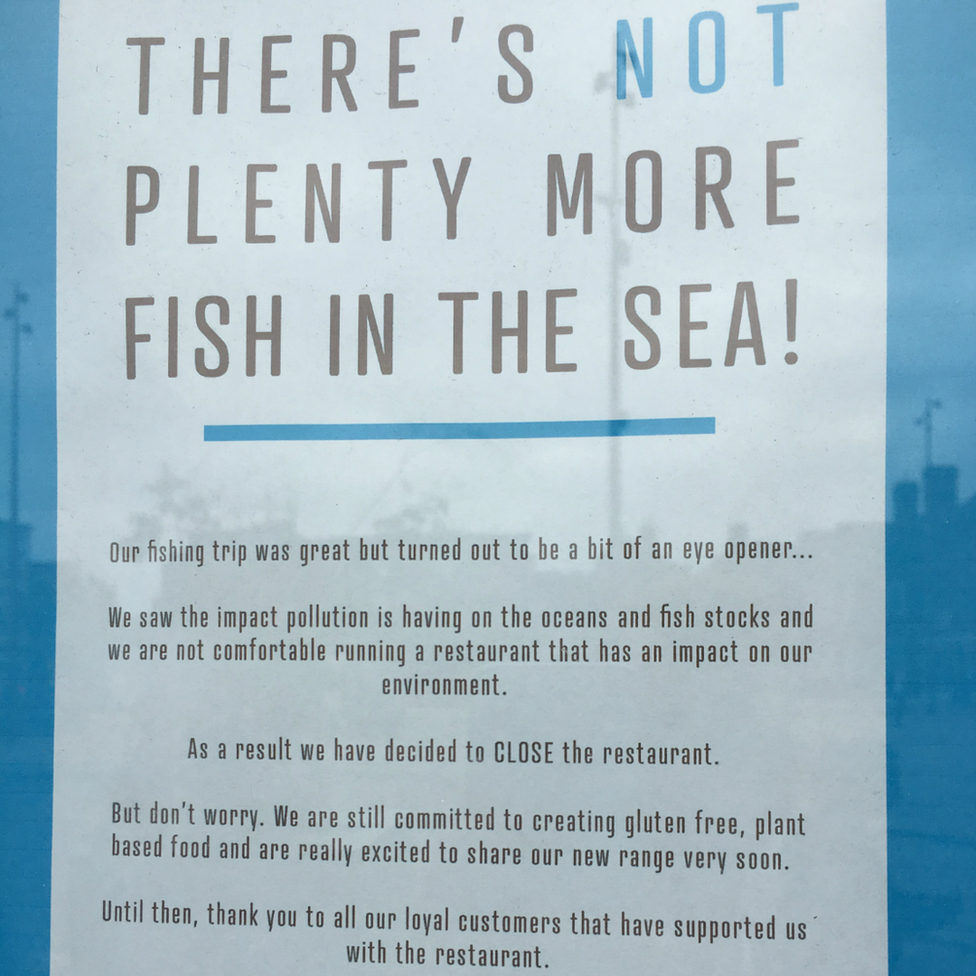
The owners of The Fish and The Chip posted a sign explaining their decision to close
"If you are buying from a reputable supplier or business that buys from a well-managed sustainable fishery, then that fish is going to be there for you and I don't think it is going to change.
"I want to be able to take my grandkids to the fish and chip shop and still see cod and haddock and I think it is important to keep that going."
So should we stop eating fish?
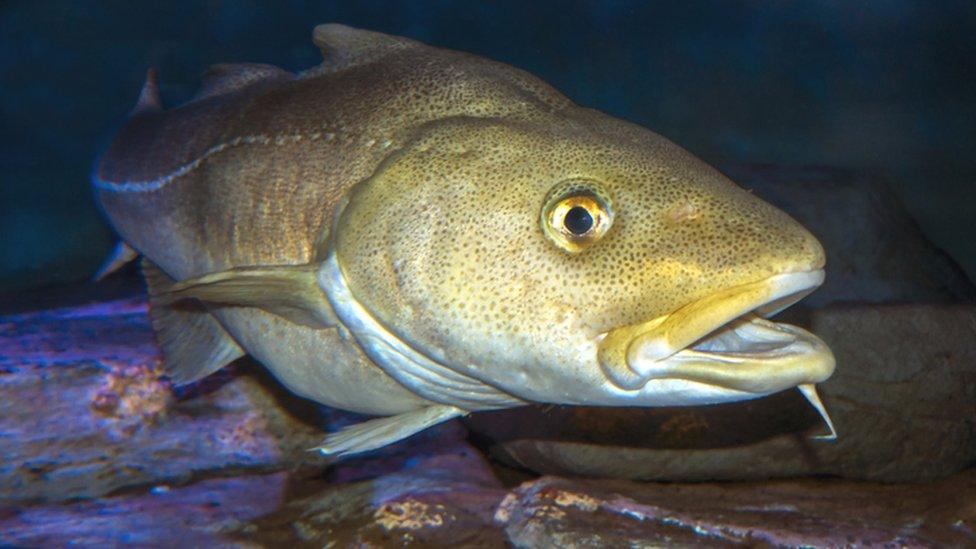
People in the UK eat about 70,000 tonnes of cod each year, according to an industry group
About 70,000 tonnes of cod is eaten in the UK every year and the proportion of cod consumed is rising, according to Seafish.
The industry group says the suggestion UK and European fish stocks are in decline is misleading and the majority of fish populations in EU waters are rising.
Mark Coaker, operations manager at Millers Fish & Chips in York - the 2018 national Fish and Chip Shop of the Year - said they have no concerns over microplastics in fish.
"Attenborough's Blue Planet did a lot to raise awareness around plastic in the oceans and it has really made people think about what we are doing," Mr Coaker said.
"There's no reason why reputable fish and chip shop owners would carry on serving fish if they had any concerns about plastic in it, and fisheries would not even let it off the boat."
The MSC reiterates this. In a statement addressing the issue, external, it said: "Wanting the world to stop eating fish to end overfishing is not a practical solution to the ocean's troubles, considering over a billion people rely on fish as part of their diets, many of them in poorer parts of the world.
"With more than half of the world's fish coming from the global south, simply cutting it out - even if it were possible - would deprive millions of people of an essential protein source and livelihood."

Follow BBC East Midlands on Facebook, external, Twitter, external, or Instagram, external. Send your story ideas to eastmidsnews@bbc.co.uk, external.
- Published9 July 2019
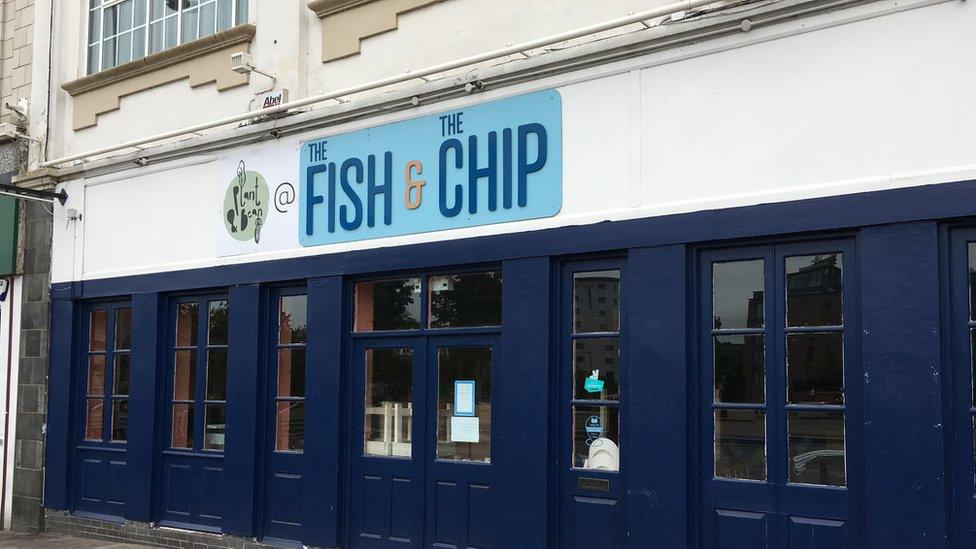
- Published28 June 2019
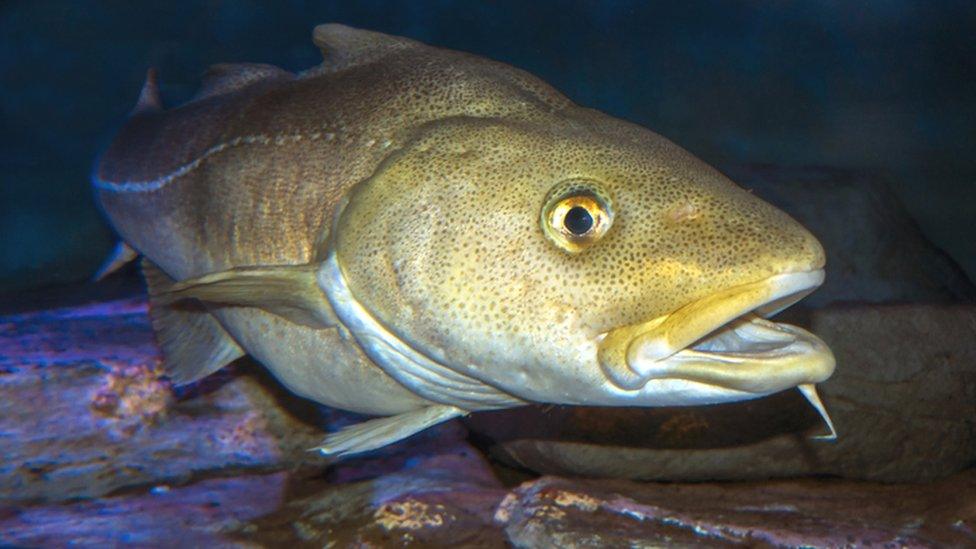
- Published18 November 2018
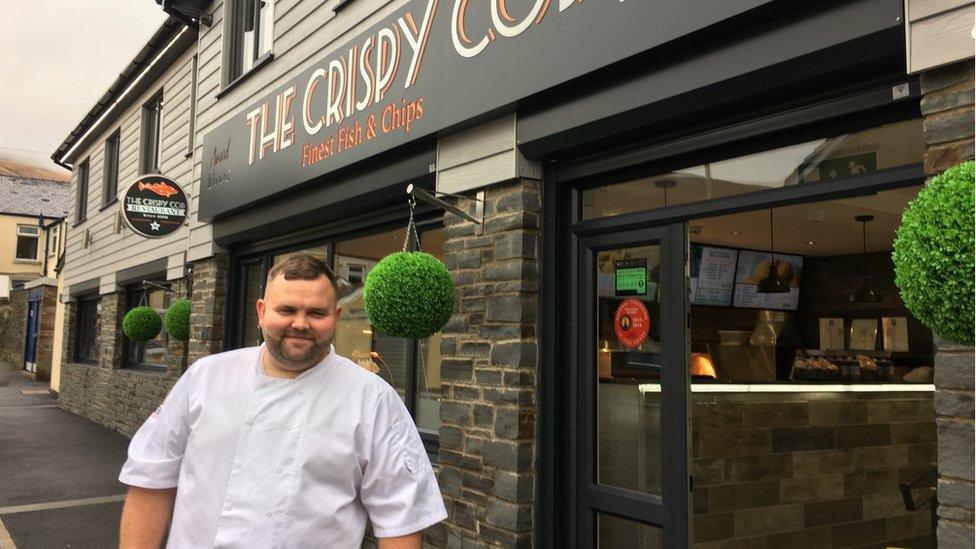
- Published2 November 2018
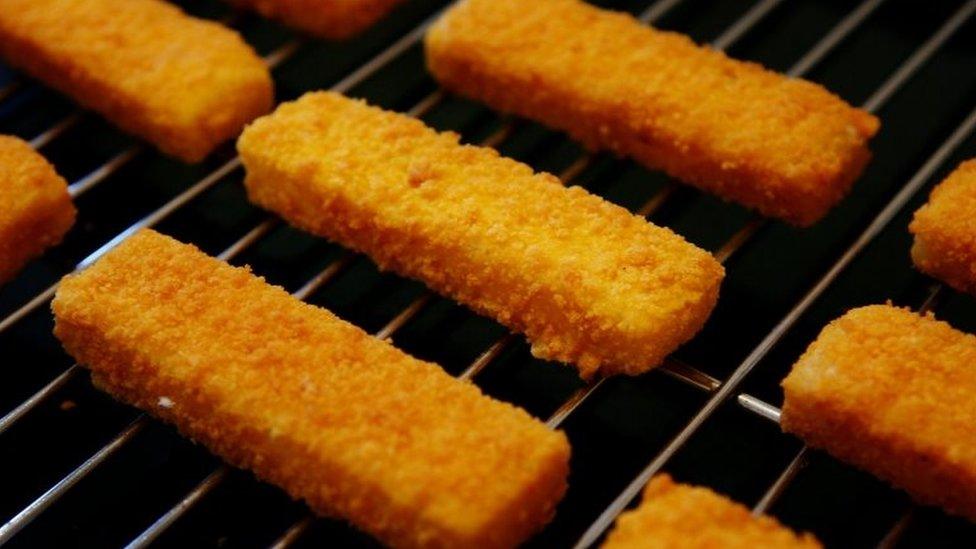
- Published19 July 2017
